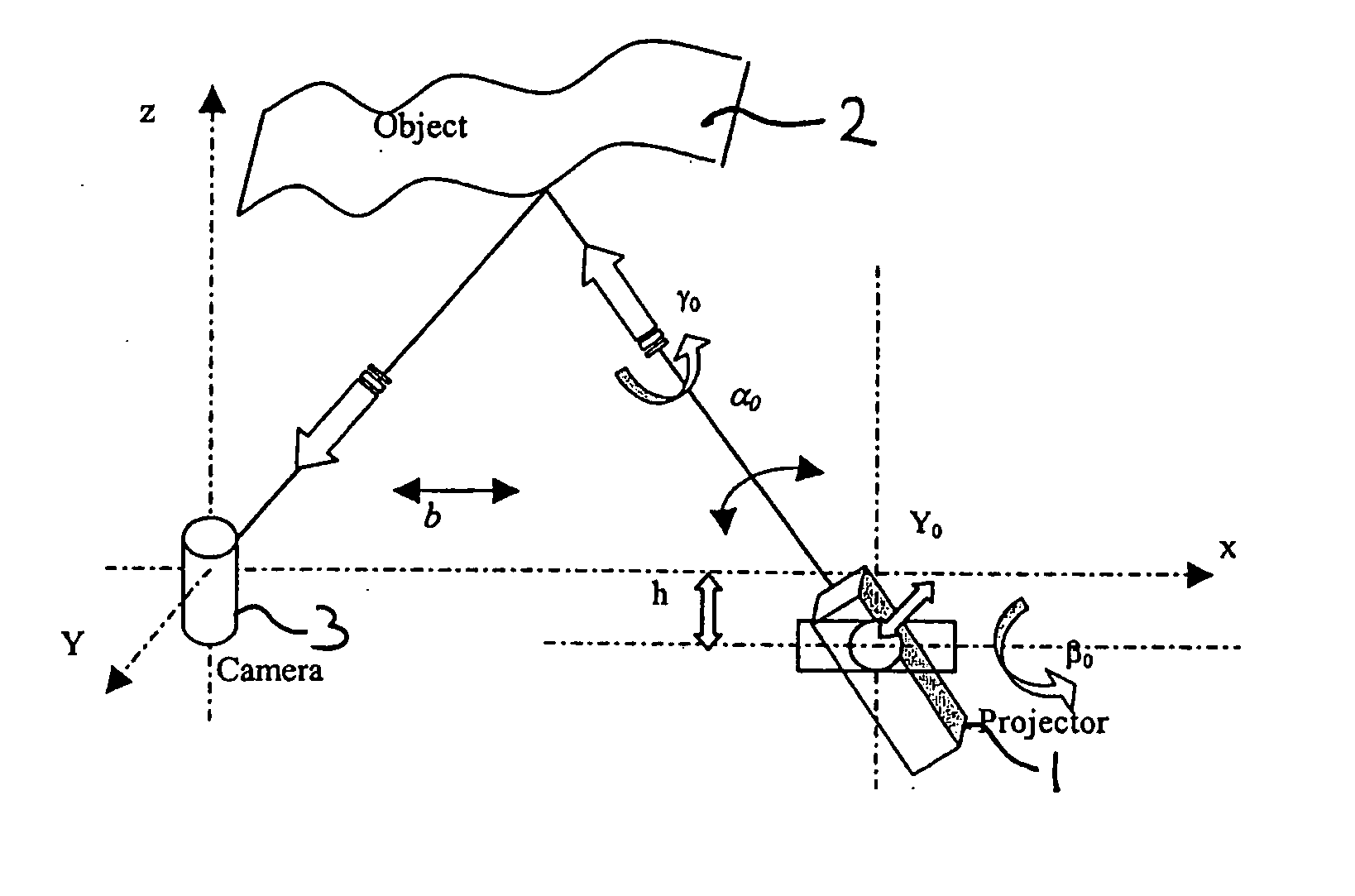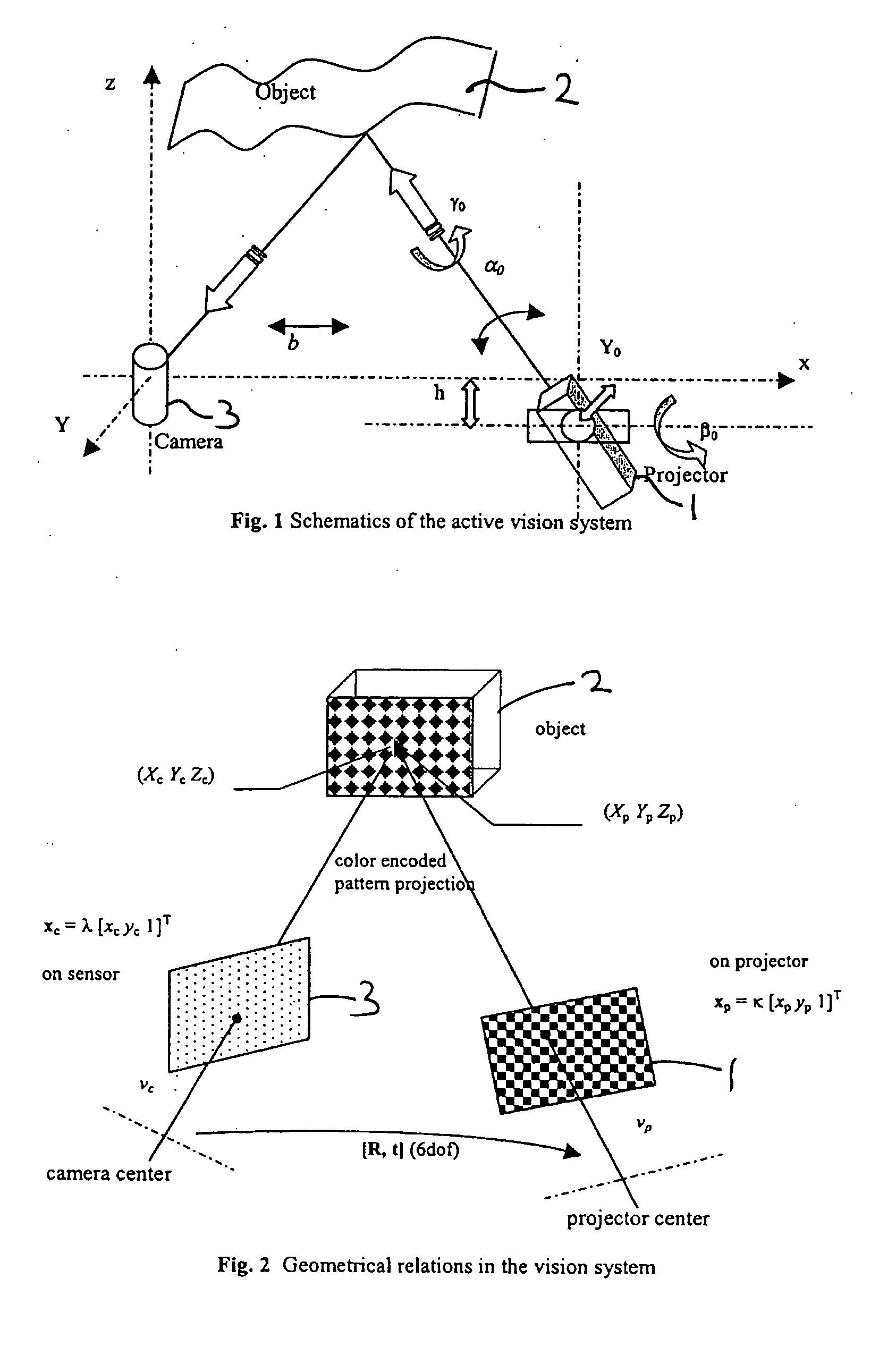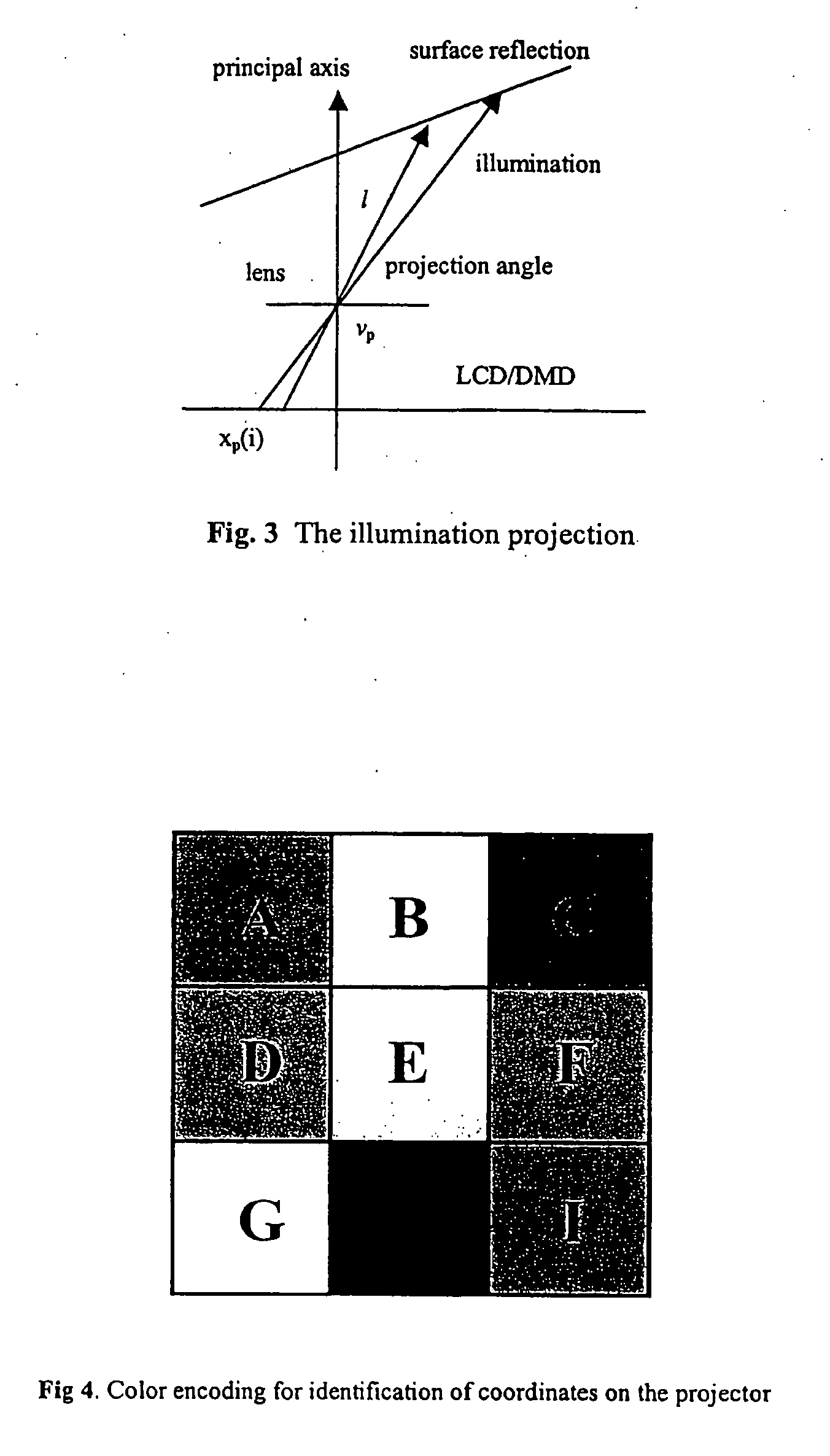System and method for 3D measurement and surface reconstruction
- Summary
- Abstract
- Description
- Claims
- Application Information
AI Technical Summary
Benefits of technology
Problems solved by technology
Method used
Image
Examples
Embodiment Construction
[0048]FIG. 1 shows an active vision system according to a preferred embodiment of the invention. The system comprises an LCD projector 1 adapted to cast a pattern of light onto an object 2 which is then viewed by a camera and processor unit 3. The relative position between the projector 1 and the camera in the camera and processing unit 3 has six degrees of freedom (DOF). When a beam of light is cast from the projector 1 and viewed obliquely by the camera, the distortions in the beam line may be translated into height variations via triangulation if the system is calibrated including the relative position between the projector 1 and camera. The vision system may be self-recalibrated automatically if and when this relative position is changed. The camera and processor unit 3 preferably includes a processor stage, as well as the camera, for processing the observed distortions in the projected pattern caused by the object 2 and associated data and for enabling and carrying out reconstr...
PUM
 Login to View More
Login to View More Abstract
Description
Claims
Application Information
 Login to View More
Login to View More - R&D
- Intellectual Property
- Life Sciences
- Materials
- Tech Scout
- Unparalleled Data Quality
- Higher Quality Content
- 60% Fewer Hallucinations
Browse by: Latest US Patents, China's latest patents, Technical Efficacy Thesaurus, Application Domain, Technology Topic, Popular Technical Reports.
© 2025 PatSnap. All rights reserved.Legal|Privacy policy|Modern Slavery Act Transparency Statement|Sitemap|About US| Contact US: help@patsnap.com



